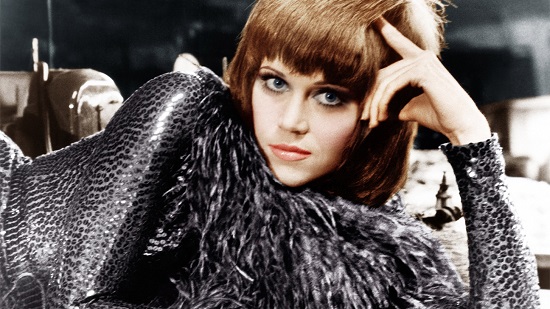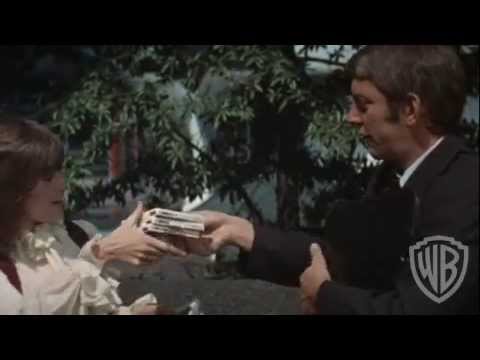Like pornography, cool is something you know when you see it. Like the sex that people have in pornography, everyone wishes they had it, but hardly anyone does. Both are expected to be as effortless as they are impressive, and both have something in common with dancing (which sits halfway between them on the spectrum) and both are, to skirt around a joke, ineffable. Typically, I would sooner die than identify as the kind of person who mediates on the nature of cool — meaning that I would sooner chug bleach than pontificate over what is or what isn’t, but anyone’s hand can be forced by circumstance. After passing a shop in Shoreditch promoting a new “designer” reboot of the Zippo lighter on my way to a screening of Klute a month or so ago, I found my mind changed on the subject. I had so imagined the Zippo to be too sacred, too ancient, too Eastwood for sudden hipster re-branding — a thing as closed to hot air as resistant to wind — that I was taken by surprise; this part of London is so often function’s graveyard, but certain forms are necessarily iconic. The Zippo is unassailably American and is, therefore, unassailably cool as-is. It’s a Coca Cola can, or a Cadillac. Things which belong on the Zippo: Harley Davidson logos, American flags, the Tasmanian devil. Things that do not belong on the Zippo: almost anything else.
Nobody buys a vacuum to look more like James Dean, and nobody buys an Evian bottle to feel like a cowboy, but flip-top Zippos, like shamanic tokens, have certain transformative properties — Zippo’s official website calls it “a movie star,” and a Google search for “zippo lighters in cinema” brings up a video tutorial, How To Snap Start A Zippo Like In The Movie Reservoir Dogs (which was, once, just as good as titling it How to Be Cool, Daddy-o). I read that Peter Fonda was given a gold-plate one with his name engraved on it after filming Easy Rider: Thank you, Peter, The Canadian Film Industry,. "I don’t smoke cigarettes," he shrugged, "but I’m sure I can do something with it" — this was in 1967, and so I assume the Canadians guessed what he smoked instead. Rebellion, as it turned out, was a family trait. His sister’s Klute was released in 1971, by which time the Fonda femme had earned herself a mug-shot after assaulting a cop at an airport, and reframed herself as an activist. The following year, Klute won her the Best Actress Oscar, and now, the mug-shot appears on Etsy magnets — this magnet features the defiant black power salute of Hanoi Jane in a 1970 mug-shot after she was arrested on charges of kicking a Cleveland police officer! If this had happened within the last ten years, then there would also be mugs that said IF JANE FONDA CAN GET THROUGH [whenever], YOU CAN GET THROUGH TODAY, which is to say that unlike her brother, her accolades came with a little less ease, and required a little humility. Fonda, a lifelong bulimic, was hardly a fan of eating humble pie. Her father’s childhood insistence that she should concentrate on being pretty had only succeeded in making her want to be bad and brilliant, instead. “I wouldn’t say I was blacklisted [then],” she would later recall. “But I might say I was grey-listed.”
Klute is a film about the kindness of a very few men, and the evil of many more of them. It is also about a very beautiful, very smart, and very self-sufficient young woman, played by Fonda, who happens to sell her body for money. In several scenes, she is pictured wearing a dress by Norman Norell which makes her resemble a mermaid, or, if one prefers, a Joan of Arc figure in chain-mail armour. On the poster, she wears it unzipped at the back like Vicki Dougan — the patron saint of quaint erogenous zones — as if she is expressing all three of her selves in one outfit: mythic, tough, and slyly sexy. Women want to be her, men want to love her, and all of us want to understand her better, but Bree is no Golightly, and does not go lightly — few would be brave enough to call her Miss Whoever-you-are, and sweet little Mean Reds Hepburn would never equate the cost of a fuck to the cost of a washing machine. It is also a film about the ways in which we coerce other people in order to make them hurt us, for the pleasure of saying “I told you so”. There is love in it but, as is sometimes the case in nonfictional life, it’s a sad love. That Jane Fonda’s wounded-hellcat way of playing Bree is the gravitational pull at the movie’s centre is obvious, less apparent is how much of the character is invention, and how much is Fonda herself. In 1971 — after Vietnam, and after Barbarella — time spent fending off detractors, making dangerous if well-intentioned decisions and trading on a sexualised image were, after all, hardly unknown possibilities. "When I was researching myself,” she said in an interview with Harpers after releasing her memoir, “I wondered, is there a ‘there’ there? Or am I just a hollow person who gets filled up by whatever man I’m with?” This was a perfect Bree Daniels line. One minor difference between the two women: in Klute, Bree doesn’t want the phone to ring.
There is an editorial from an early issue of Vogue Nippon in which Freja Beha Erichsen, who is a shaggy-haired Danish gamine, is dressed in various close (and, one imagines, very expensive) copies of Bree’s streetwalking costumes — the story is called ‘The Untold Crime’, and is notable for presenting a weird, recursive feedback loop in which Erichsen is a model who’s acting at being an actress who is playing a prostitute who is, crucially, trying to make it big as an actress. Curiously, the scene in which we meet the character at a model casting has been omitted, although there is one staged shot included in which the model appears to be weakly embracing a john — another mille-feuille of a photograph, given the layers of fake-out play in the source material. Does Fonda believe that Bree can act? And if so, when is she acting? Masking interior truths with exterior lie is a typically feminine sleight-of-hand. It is somewhat disorientating to see the falsified creation of an actor behaving falsely, but then all seduction is fakery, anyway, and like johns, we go to the movies to be seduced. In this reinterpretation, Erichsen is either dead-eyed when holding her ‘client’ because she’s a magazine model, or she is a very fine actress herself — undoubtedly, her face displays the boredom of one who knows that sexiness is, at its core, a form of appeasement. It is also perhaps worth noting that the editorial in question — taking, as it does, its inspiration from a film about sexually-terrorised women — is shot by Terry Richardson, a fact which, legally, I am unable to say might form another equally interesting loop of recursion, but which I include here because I have faith in you, the reader, and in your powers of inference.
These photographs, like the Zippo digression, are things I mention because they are useful tools in explaining the way that our ‘real,’ ‘authentic’ counterculture is sometimes degraded. Klute’s core in authenticity drives all of its action and all of its interactions: the tensions between the truth and the lie, the real self and the projected self, the masculine female and the feminine male, the pretence of love for money and the game of being indifferent for self-preservation are fuel for its central engine. In Vogue Nippon, we might say that Erichsen is an authentically inauthentic product: she is herself a designer Zippo lighter, or a web tutorial wherein the second-hand simulation of something enables our mass emulation. Only traces of the countercultural object survive in these broad hieroglyphics — Fonda’s vaguely helmet-like hair is as much a bulletproof product of its time as Kubrik’s oft-derided conclusion that, in the futuristic world of Alex DeLarge’s droogs, our music would still be played on cassette tapes, so Freja, instead, has a modern shag. She holds a telephone as if she has never seen one before, or as if she is not from this planet. Her legs, in their high-high boots, are a pair of tarmacked roads with a mystery at their intersection. She might as well hail from outer space: her rangy, coltish looks are so unlike anything we encounter in everyday life that she is almost a Martian, phoning home.
“Tell me, Klute. Did we get you a little? Huh? Just a little bit?," Bree Daniels asks her detective. "Us city folk? The sin, the glitter, the wickedness? Huh?” Except there is no sin in this New York, and there is no wickedness either, only all of that skimpy sidewalk glamour. It’s a reduction that only succeeds in leaving us with an ersatz Real, or with a version of truth that is less like our real lives, and more like the way that we choose to imagine them. I was wrong about the Zippo being too rough ‘n’ tough for redesign, as on its alphabetically-ordered movie resume it lists Casablanca, but also lists Harold And Kumar and Sex And The City. How many editorials are there, I wonder, inspired by Jodie Foster’s baby-hooker-girl chic in Taxi Driver? The only note I made at the screening said: “interesting how the sound of a spooling tape recorder makes everything seem confessional,” though in retrospect, I’m not sure why I found this interesting. It’s a strange millennial mania, this conflation of age with truth, and this desire to combine the ancient artefact with modernised style and convenience. Prizing true grit may yet prove to be an outdated notion or, like the championing of Real Punk, a thing nine-tenths the weedy preserve of the poseur. In Klute, one’s personal authenticity is as diamond-valuable as it is easily shrouded or trashed, which makes the very fact of it ― crucial and crippling ― contradictory. It had never occurred to me that Jane Fonda’s Bree was leaving with Donald Sutherland’s Klute at the end until someone else told me they thought she was. Running away with a man didn’t seem like Bree’s style. Except: with practice, slipping out of oneself can be just like stepping out of a long, green gown. Trying on toughness or sleekness or sexiness is, perhaps, only more of the same.
Philippa Snow is the co-editor of <a href=http://hexus.info/" target="out">Hexus



